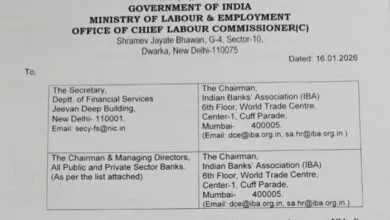Income Tax: Residents of this state in India need not pay Income Tax

As the deadline for filing income tax returns on July 31 approaches, taxpayers across India are diligently completing their returns. This period has brought an interesting observation to light on social media: the northeastern Indian state of Sikkim, renowned for its picturesque landscape and green initiatives, stands out due to its unique income tax exemptions.
Social Media Buzz
Sikkim has recently garnered significant attention on social media platforms, with users sharing posts about the state’s special tax exemption. The residents of Sikkim enjoy a distinctive privilege that sets them apart from those in other states, sparking widespread discussion and interest among social media users.
Historical Background
Sikkim’s status as a tax-free state dates back to 1975, when it merged with India. The terms of the merger included special provisions to retain the state’s existing laws and status. Initially, Sikkim operated under its own tax regulations established in the Sikkim Income Tax Manual of 1948. However, in 2008, these local tax laws were repealed by the Union budget, leading to the introduction of Section 10(26AAA) of the Income Tax Act, which provided tax exemptions for Sikkimese residents.
Tax Exemption Details
Under Section 10(26AAA) of the Income Tax Act, residents of Sikkim are exempted from paying income tax on their earnings, regardless of the amount. This exemption extends to income earned from interest on securities, dividends, and other sources, highlighting Sikkim’s unique tax status in India. Additionally, the market regulator SEBI exempts Sikkim residents from the mandatory PAN requirement for investments in Indian securities and mutual funds.
Criteria for Tax Exemption
While the social media posts have captured attention, it is crucial to understand the criteria and realities behind Sikkim’s tax-free status:
- Source of Income: The income must be generated within Sikkim; income from external sources does not qualify for this exemption.
- Marital Status: A Sikkimese woman who marries a non-Sikkimese man may lose her tax exemption status, a condition upheld by the Supreme Court in a 2008 ruling.
Broader Context: Other Northeastern States
Apart from Sikkim, some other northeastern states are also exempt from the Income Tax Act. Under Section 10(26) of the Income Tax Act, members of Scheduled Tribes are provided with tax exemptions. This includes individuals residing in states such as Tripura, Mizoram, Manipur, Nagaland, Assam, and Arunachal Pradesh. Additionally, tribes living in the Ladakh region of the Union Territory of Jammu and Kashmir also benefit from this tax exemption.
Conclusion
The unique tax status of Sikkim, and the broader exemptions for certain northeastern states, highlights the diverse and tailored tax policies within India. As the conversation continues on social media, it’s essential to understand the specific criteria and historical context that underpin these exemptions.
